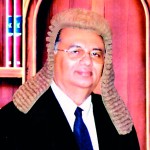LL M. in International Studies in Intellectual Property Law
View(s):The University of West London (UWL) in partnership with ANC’s School of Postgraduate Education launched in September 2012 the first in a series of Master of Laws internal degree courses which are taught entirely here by visiting UWL Faculty and by local Faculty. The LLM in International Business and Commercial Law has already attracted over 20 students- the ideal size for each LL.M. is 20-25 students as the courses are taught through a combination of lectures, tutorials, seminars, small group sessions, practical experience and workshops. Two specialist modules are taught each week, over three hours of teaching time, and in addition, students will complete a 15,000 word Dissertation, which will be supported by a Research Methodology module taught weekly. The courses are for one year with lectures spread over two semesters of four months.
Applications are now being entertained for this LL.M. as well as for three new LL.Ms that will be offered from January 2013. These are the LL.M. in International Banking and Finance Law; LLM in International Studies in Intellectual Property law; and the LLM in International Investment and Arbitration Law.
Each LL.M. offers appropriate experience for those looking for a career in the global economy within multinational corporations, investment banks, accounting firms, international law firms, international consultants, international fund management, employment agencies and Human Resources. The aim of the programmes is to produce students who have employment prospects within this range of international organisations and multinational corporations. Students will acquire the necessary knowledge and understanding of the legal regulations of international and national business and finance. Teaching methods will have an emphasis on developing the skills which are both generic and legal to apply principles to issues which will serve students in all aspects of their future careers.
A unique feature of the LL.Ms taught here is that in addition to the international content specialist guest lecturers will address Sri  Lankan legal aspects. During the months of September and October, for instance, guest lectures have been delivered by Dr Wickrema Weerasooria, Dr Harsha Cabraal P.C. and Ms. Marina Fernando, former Deputy Director General of the Securities and Exchange Commission.
Lankan legal aspects. During the months of September and October, for instance, guest lectures have been delivered by Dr Wickrema Weerasooria, Dr Harsha Cabraal P.C. and Ms. Marina Fernando, former Deputy Director General of the Securities and Exchange Commission.
The LLM in International Studies in Intellectual Property Law covers Copyright, Trade Mark and Patent Law with its European and international aspects, including legal questions associated with new technologies, multimedia and the internet. Two specialist modules will address the following aspects, namely;
a) Intellectual Property Law in the Digital Age
This module addresses specific intellectual property issues related to the digital environment, including protection of computer software, privacy and digital rights management. The module will also enable students to locate, understand and evaluate these legal issues within an international context.
b) Commercial Intellectual Property Law
This module provides students with an in-depth knowledge of major aspects of intellectual property, such as trademarks, copyrights and patents. Particular emphasis will be laid on the analysis of intellectual property issues relating to commercial transactions.
Besides the specialist modules referred to above, lectures will be conducted on the common modules with a focus on International Commercial Law; Arbitration and Dispute Resolution; and Research Methodology.
Entry requirements
Persons with a law degree or who have been admitted to the Bar in a recognized jurisdiction will be eligible for admission. Exceptionally, persons with a good undergraduate degree of relevance to the area of study or equivalent professional qualification with appropriate law content and with relevant legal or commercial work experience will also be considered on a case by case basis.
Examinations
All taught modules will include a formative assessment, which will not count towards the final module mark. The two summative assessments will be one piece of coursework and an end of semester examination. ‘Summative’ means that the marks achieved will count towards the final module mark. The subject for the dissertation can be a comparative study or one with a focus on English Law or Sri Lankan law. Call 0777 449966 for more information. Dr. Dayanath Jayasuriya P.C.
Follow @timesonlinelk
comments powered by Disqus




















